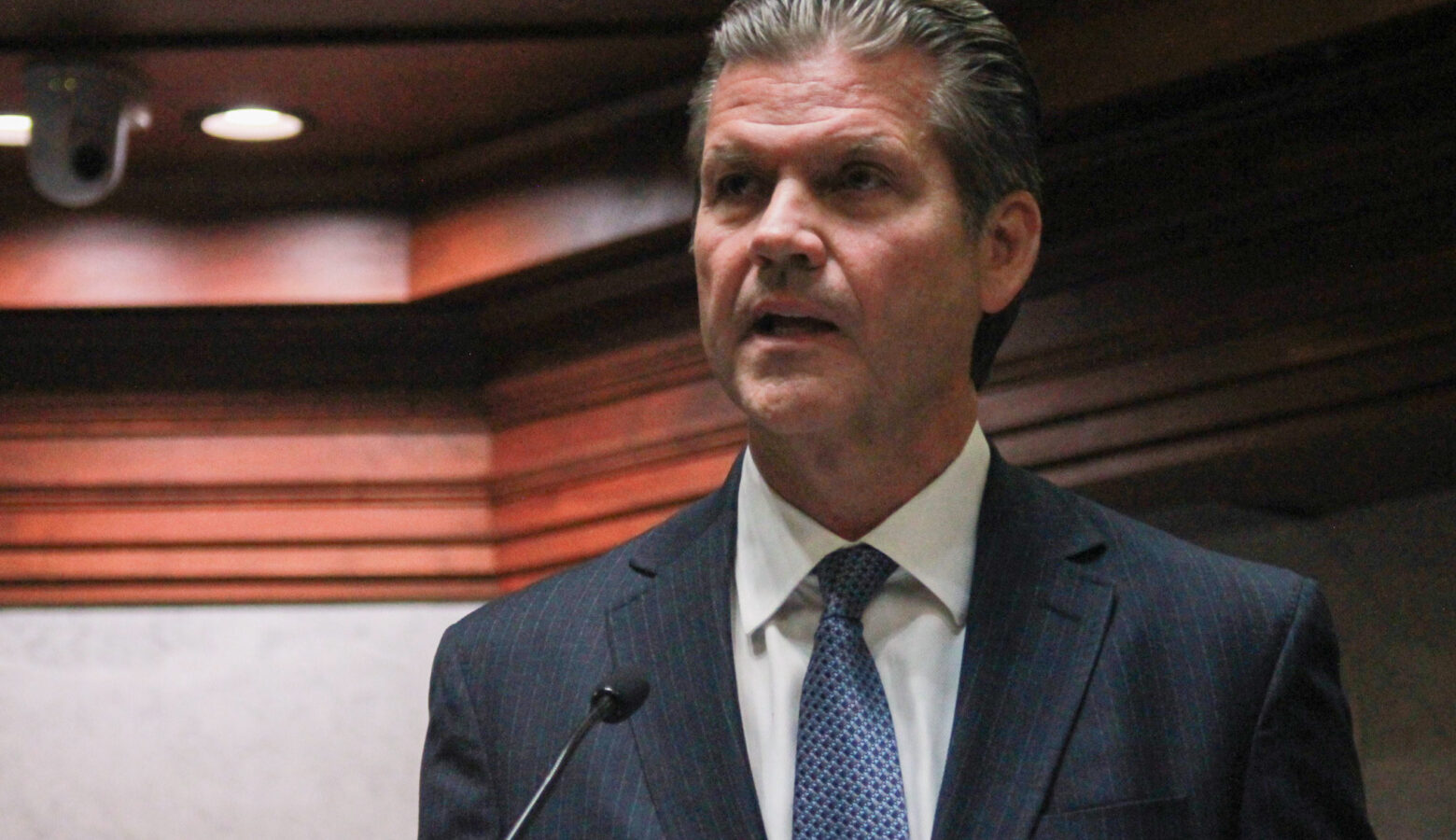Senate GOP budget proposal splits from House on school vouchers, child care limits

The Senate Republican budget proposal, unveiled Thursday, differs from its House counterpart in three key ways: it does not expand school vouchers; it holds back much more money in reserve; and it lowers the eligibility for Child Care and Development Fund, CCDF, vouchers for child care.
The Senate version of HB 1001, like the House, increases K-12 funding by two percent in each of the two years of the budget. But it doesn’t change the existing income limits for the state’s private school voucher program.
Both the governor and House Republicans want to eliminate those limits — which Senate Republican budget architect Sen. Ryan Mishler (R-Mishawaka) said would cost about $170 million.
“It’s not that we don’t want to do the vouchers — it’s just how do we pay for them,” Mishler said. “I think that’s going to be the difference is just how do we fund that.”
Democrats applaud Mishler for not expanding vouchers — but say the decision to lower the income eligibility for CCDF in order to help eliminate the existing waitlist is the wrong move.
A family of four earning about $48,000 is eligible now; the Senate GOP budget would lower that back to previous levels, which is about $40,000 for a four-person household.
Sen. Fady Qaddoura (D-Indianapolis) said that doesn’t really solve the problem.
“We will still have families across the state who are struggling,” Qaddoura said. “They don’t have enough financial resources to pay for child care.”
The Senate Republican budget plan holds back more than $3 billion in reserve the next two years, hundreds of millions more than the House version. Mishler said that’s to help cover any economic issues that might arise.
Sen. David Niezgodski (D-South Bend) said that’s too much held back in such a tight budget.
“I do believe that everyone should have some kind of reserve. You’ve got to be able to pay your bills,” Niezgodski said. “But I think there’s some room — we can still work to do better by Hoosiers.”
Join the conversation and sign up for our weekly text group: the Indiana Two-Way. Your comments and questions help us find the answers you need on statewide issues, including our project Civically, Indiana and our 2025 bill tracker.
Both the House and Senate budget proposals don’t spend enough to eliminate existing waitlists for Medicaid services. Mishler said lawmakers must make changes to the program as its share of the state budget continues to grow significantly.
Senate Republicans said part of their budget proposal aims to improve transparency in state government.
Provisions included in the budget plan unveiled Thursday target travel by elected officials and funding in the Secretary of State’s office.
Mishler said all statewide elected officials and the governor’s cabinet would submit annual travel reports to the legislature.
Those reports would say where and why they went outside the state on official business, and who paid for it.
“You know, we hear stories about people traveling, things like that. We are the appropriating body; I think we need to know,” Mishler said. “I think we just all need to know where they’re going and, if they’re on state business, how are they paying for it.”
Secretary of State Diego Morales has attracted criticism for his recent economic development trip to India — with even the governor suggesting it’s not in Morales’s job description.
The Senate GOP budget also takes away Morales’s ability to freely spend money from certain dedicated funds in his office that are generated by fines and fees.
Niezgodski applauds those provisions.
“It’s the things that the legislature should do and I think those are the things that Hoosiers demand,” Niezgodski said.
The budget bill will be up for a vote by the Senate next week.
Brandon is our Statehouse bureau chief. Contact him at bsmith@ipbs.org or follow him on Twitter at @brandonjsmith5.


